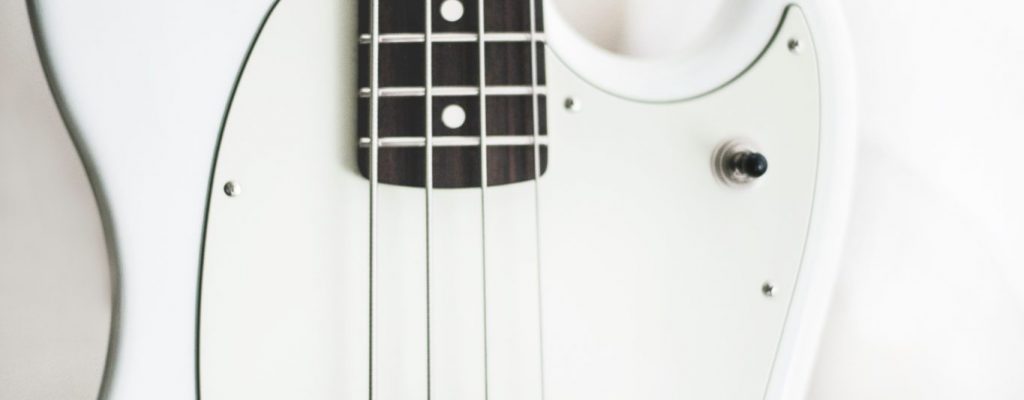Slapped the Funk Out of a Guitar

What impact comes from when bass guitars are used to pick Funk? (photo/ K. Shea)
Funk Force Field Staff
July 21, 2021.
Updated January 7, 2025.
When playing Funk, the bass guitar often carries the songs rhythm like no other instrument could. Within the sound that is being sought, each distinct slap or thump of Funk is heard clearly. Legendary bass players played their instruments straight ahead, and while their names are not always known, the songs that they played on are recognized all over the world. Arguably, the bass guitar delivers Funk like no other instrument can. Within each sound that is being sought, each slap, strum, or thump has a clear purpose. Some bass players thump, while others are said to slap. Others slide, and many are known to walk, in terms of how they explain playing the bass guitar. Musicianship was appreciated and shaped the way we critically listen to music. There are distinct musicians who played the bass lines that defined their generation.
A great bass player’s music affects listeners in different ways. In the book, R&B Bass Masters: The Way They Play, by Ed Friedland, styles were clearly described. In speaking of James Jamerson, Friedland wrote how, “By the end of 1965, Jamerson’s playing became even more complex as he began to develop his signature 16th-note style. The lines he created in hits such as Stevie Wonder’s “I Was Made to Love Her” and “For Once in My Life” and the Four Tops’ “Reach Out” and “Bernadette”:-to name but a few-are masterpieces unto themselves, displaying a distinctly original rhythmic concept. (The label began listing musician credits in 1971 with Marvin Gaye’s album, “What’s Going On”.)” Funk musician George Clinton often points to Motown as having some of the funkiest music of all time. The tight arrangements and smooth harmonies were often hidden behind the depth and complexity of the music.
Five decades after the Motown era began, something changed. The recognition that was long overdue was given to a distinct group of musicians. Ed Friedland further explained that, “In 2000 [Allan] Slutsky co-produced a stirring film version of, Standing in the Shadows of Motown, bringing together surviving members of the Motown session crew known as the Funk Brothers for a reunion band tribute to the music, and most significantly, to their brother, James Jamerson.” For decades to come, when barbershop conversations center around legendary musicians, the Funk Brothers will be a part of that conversation. For those that truly know, the bass-playing skills of James Jamerson will be talked about for eternity.
There are other musicians that are synonymous with the Funk’s most identifiable sound. A few are named, and many more exist on the list of unsung bassists. Billboard Magazine featured an article titled, Bootsy Collins Shares His Multi-Layered Definition of Funk, Remembers the ‘Magic’ of Bernie Worrell, by Dan Rys, published October 20, 2017. In that piece Bootsy explained how, “Bootsy and his brother only stuck it out in Brown’s band for 11 months, before the pull of the unknown — and the urge to listen to Jimi Hendrix while getting high on the tour bus — eventually led him to Clinton. But Brown rooted him in The One, the guiding principle of his brand of soul-funk grooves, and P-Funk turned him loose.” This story is legendary, and for decades people took Bootsy Collins for granted. It was he who brought many key elements to George Clinton, for their new style of uncut Funk. Added to that, the way Bootsy played the bass guitar slapped, slid, and plucked the Funk into the music.
In an August 3rd, 2003 Bass Guitar magazine article titled, Golden Graham, Larry Graham stated how, “There weren’t lots of videos of my stuff around, so people couldn’t see what I was doing, but as we did more TV shows, people realized they had to play like me, especially in covers bands that played the tunes I’d played on. Over time, I became more aware of players playing like me. It became more and more, and then players in other genres started thumping and plucking.” Graham’s explanation doesn’t come close to explaining how much he influenced generations of bass guitar players with a style that he originated.
Rumors arrive long before the musicians do, whispering about how bass players were known to slap the Funk out of their guitars. People had it all wrong. Bass grooves soothed, and listeners quickly learned about how a masterful bass player was never disrespectful.
